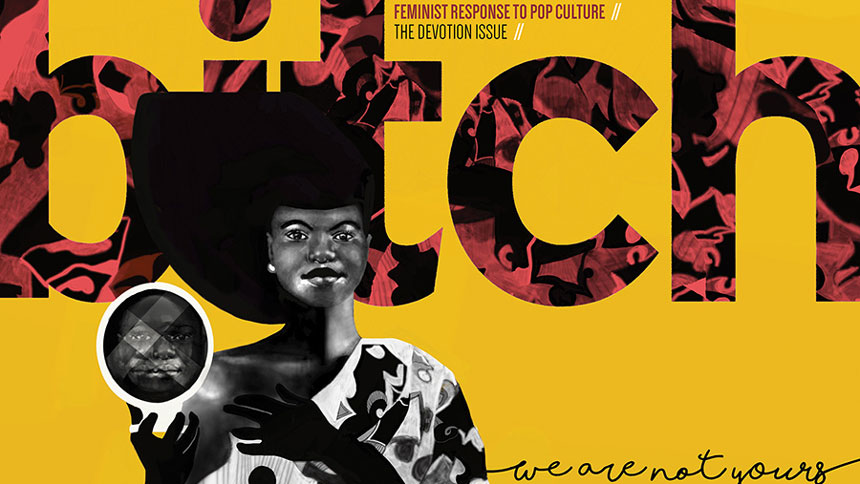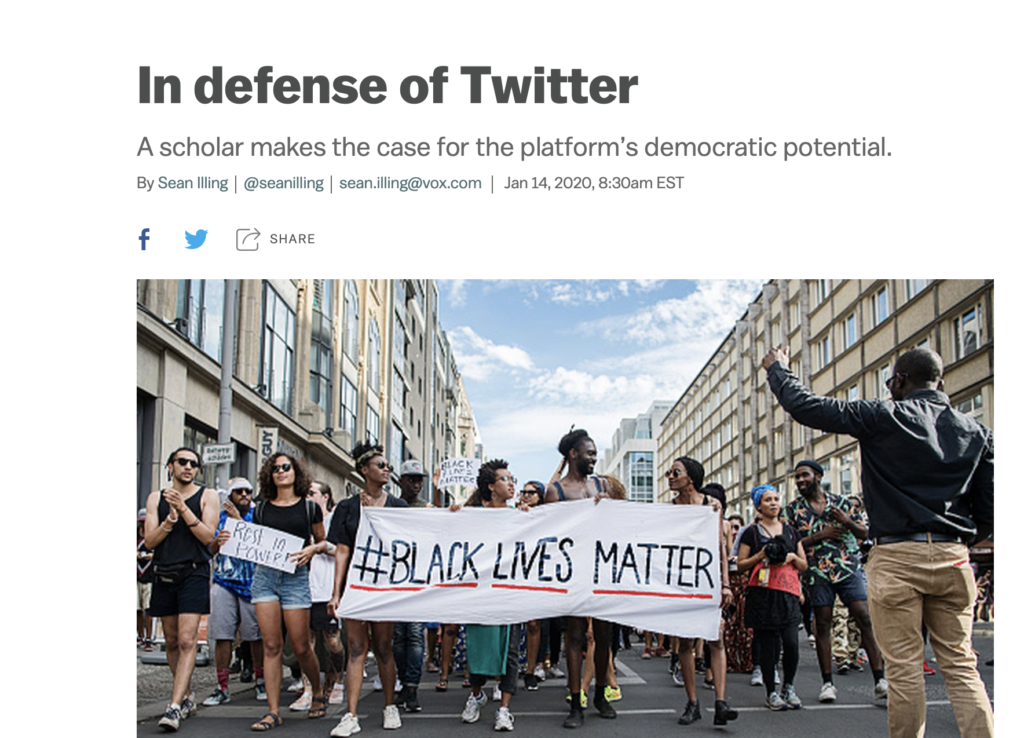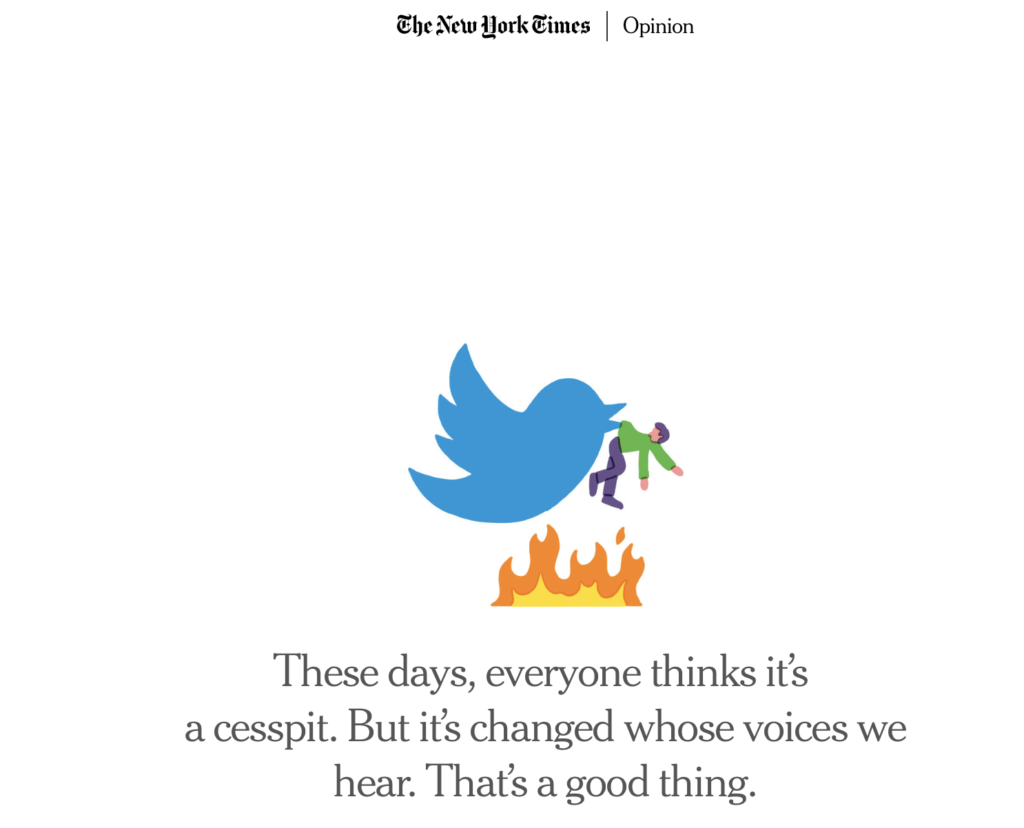


“The problem of online harassment and hate speech, for example, is real, and Twitter and other technological platforms haven’t done enough to protect users. The question of trolling and fake accounts and manipulation and all that kind of stuff is something we have to address. At the same time, there are limitations to what these companies will do. They exist to make money, not to serve democratic ideals. They want more people using their platforms and everything else is secondary. So we can’t expect Twitter to be altruistic or just. If these companies get better at policing their own platforms, we could have more and better good stuff and less toxicity. I’d say we’re making very slow progress, and a lot of it is because ordinary people are making demands of the companies and forcing them to change their policies. But in the meantime, I continue to believe that it’s a good thing that Twitter, totally by accident, became a place where African Americans are overrepresented as compared to other media outlets. And as a result, you can now log onto Twitter and learn about a world and a culture in a different framework, and that diversity is a huge gain for society.”
Read more at Vox, “In Defense of Twitter: A scholar makes the case for the platform’s democratic potential“

“Rightful critiques of social media, and Twitter in particular, shouldn’t obscure the significance of the conversations that have happened there over the past 10 years. As we enter 2020, powerful individuals and societal problems can no longer avoid public scrutiny. That’s thanks in part to those who have demanded attention through the website. The online activism and commentary that take place on Twitter are often dismissed as expressions of “cancel culture” or “woke culture.” But a closer look reveals what’s really happening: Many people who lacked public platforms 10 years ago — the young and members of marginalized groups in particular — are speaking up, insisting on being heard.”
Read more at New York Times, “Twitter Made Us Better: A Decade of Distrust“
“Jackson defines storytelling in a social justice movement as any action that finds a “rhetorically compelling” way to make a clear argument that conveys the movement’s intentions. She cites pamphlets distributed before the Revolutionary War and open letters written by civil rights leaders as historical, storytelling actions that ultimately don’t look that different from online discourse happening today. In Jackson’s telling, these actions all communicate and share compelling ideas, thus building a narrative around a particular movement, while also inviting opposing discourse. By creating a forceful argument with direct language and a sustained narrative, methods to join in and take action also become clear. Those looking to get involved now possess a shared vocabulary about what a movement represents and demands, which they can then also share with others.”
Read more at Mashable, “How to ensure your online activism has an offline impact“
“Twitter is not necessarily that different (of a platform). Historically marginalized groups have used whatever technology and whatever media is available to them to try to introduce their ideas, their claims, their arguments into the public sphere and so of course many of these technologies and media weren’t necessarily made for them aren’t necessarily and generally not at all liberatory or made for that purpose but they’re adopted in innovative ways, so I would argue that just as for example journalists Ida B Wells used the printing press to report on lynching in America in a way that really upset those in the mainstream at the time- segregated white press and really upset the majority of white Americans, folks can use twitter which wasn’t necessarily made for activism or made for making these claims similarly to tell stories and make claims about the Black experience for example. So we actually see it as just the continuation- that innovation and adoption of media technologies.”
Listen to this episode of Out of the Echo Chamber: Rebuilding Trust in News podcast at “Mobilizing Hashtags to Change Societies: A Discussion With Sarah J. Jackson“

